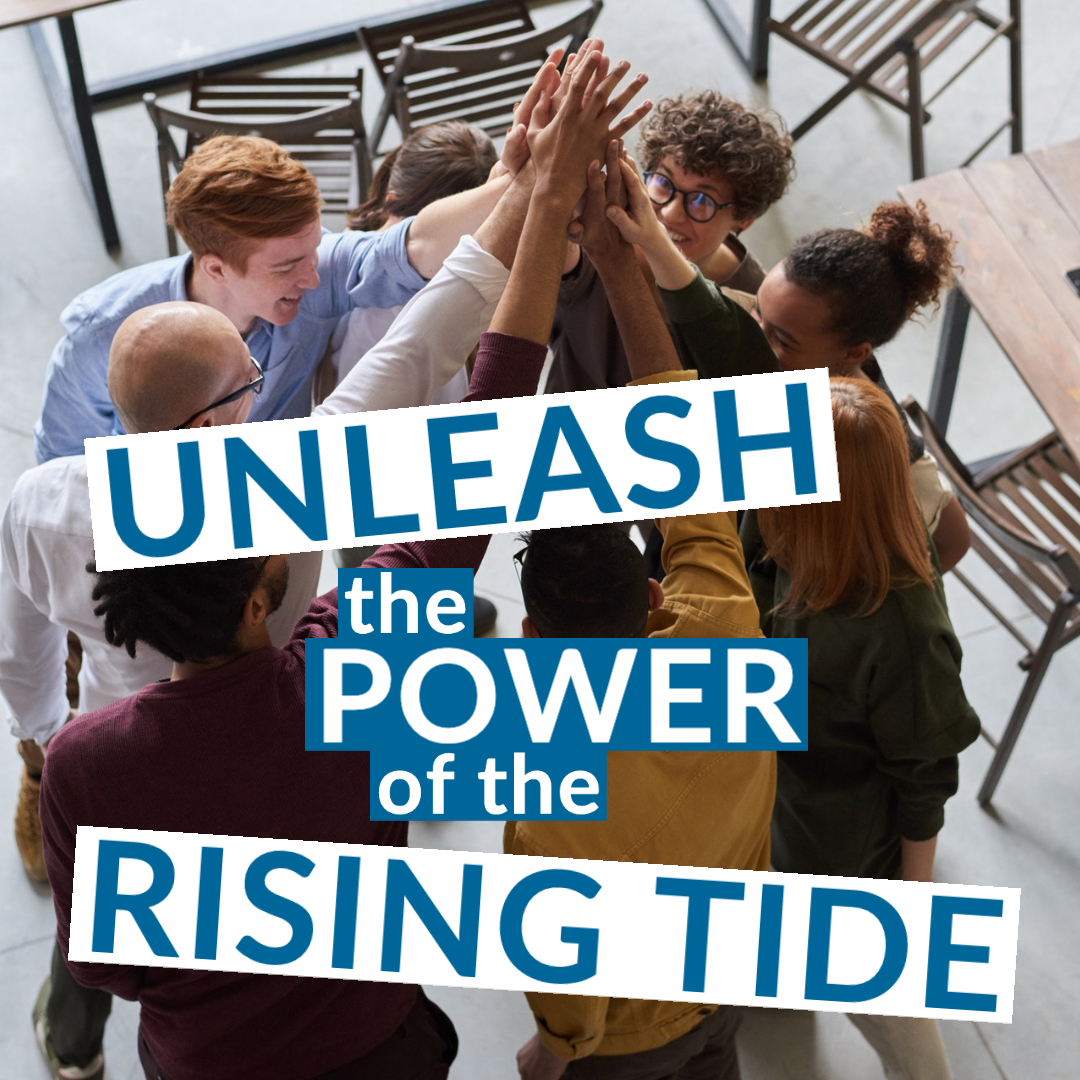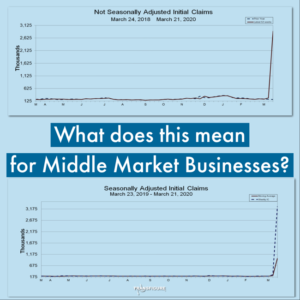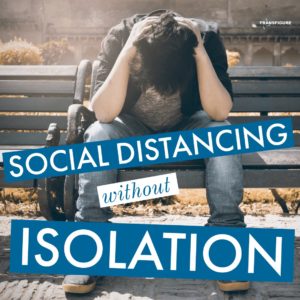The way you see yourself and the world around you determines how you interact with both.
Your perceptions shape your reality at every level and in every single aspect of your life.
As a result your perceptions have a powerful impact on your effectiveness and fulfillment in life. This is even more accentuated for leaders.
This is why taking control of how you choose to see yourself and the world around you is so important.
Often we have to choose between competing perspectives, and these decisions can permanently alter the quality of our lives.
One of these important decisions is in the mindsets frequently referred to as “zero-sum” and “rising tide.”
A quick summary of these two opposing philosophies:
- Zero-sum: this is the idea that if you win someone else has to lose. This belief is predicated on the belief that there is a limited amount of any resource and thus it can only be divided up so much or go so far.
An example of this occurs when you purchase a pie. In a zero-sum vision of the world, you love pie, and you want as much as possible. You want to get as much for yourself as you possibly can. That is, you want the biggest slice of pie that you possibly can get.
The zero-sum perspective is also sometimes called the scarcity mindset. The panic to get as much as possible comes from the belief that when this resource is gone, there is no more to be had.
- Rising tide: this is the belief that a rising tide lifts all boats. That is, in a positive economic environment, everyone makes money and everyone does well.
The rising tide mentality allows for the possibility of multiple winners in a game, or an economic event. When one person wins, others often can and do win as well. In this case, one person’s success does not necessarily have to come at the expense of someone else.
In the rising tide mentality, there is the belief that as one person wins it actually creates opportunities for others to win too.
Why rising-tide is superior
Sometimes it seems like there is no tangible limit to what can be accomplished when the rising tide model is applied.
Sure, sometimes there most definitely is a tangible limit on a particular resource. For instance, there are only so many Dali paintings, and there is only a certain amount of oil available to be extracted from the earth.
However, you should start with the belief that there has to be a win-win solution to a perceived potential conflict for resources. This forces people to apply a little creativity and ingenuity. When we do this, we often allow everyone to look at the puzzle a different way, and utilize more resources or see more value from a different angle.
This prompts us to see the situation in a new way. A new perspective can reveal solutions that a zero-sum mindset would simply never unleash.
In short, the Rising Tide mindset is built on the belief that there’s no limit to the amount of gain any one person can obtain. And the most important distinction: any gain does not have to come at another person’s expense.
Rising tide & pie
So let us re-examine the pie example.
In a rising-tide philosophy, the idea is that the pie just keeps growing or, more realistically, you can just keep making more pies until everyone has been fed.
The ultimate conclusion here is that there is no reason to hoard or take from others.
This is why the Rising Tide idea is also sometimes called an “abundance mindset.”
This is choosing to adopt the perspective that there is enough for everyone, and there is a place for everyone. As Profit is made, the economic pie grows over time and does not disappear as people make profit.
Sure, all of this is super -philosophical and heady. So why does it matter, and how does it impact our work buying and selling companies?
Let’s take a look at how life turns out when you make decisions from either one of these two perspectives.
Zero-sum desolation
I’ve observed that people utilizing the zero-sum mindset typically miss opportunities, burn bridges, and create adversarial relationships.
The zero-sum mindset thus typically produces personal isolation, emptiness, a lack of fulfillment, and scarcity in multiple parts of life. Unfortunately, this scarcity is often especially created in the things that really matter in life.
Picture the parent who yells at the referee from the sidelines of a youth soccer game. They might be driven by the belief that winning is the only object, and that winning is important only if their child has an exceptional game.
They are driven by the belief that everything hinges on the experience had by their own child and that is all that matters to them, not necessarily how well the team plays together. Their boorish sideline behavior can ruin the experience for everyone else. Later, people will turn away from him when he enters the Dairy Queen after the game.
Admittedly, a zero-sum approach does not guarantee failure. In fact, a lot of zero-sum people have found success in business, which can reward this behavior, and thus they cling to this approach.
However, when you look closely, you will begin to see that many “successful” people are unfulfilled or angry or just all alone.
Maybe it’s because they gained their success at the expense of others and now they have no one left to enjoy it with.
Rising tide celebration
Rising tide mindset typically creates new and unexpected opportunities, additional connections, and giving or nurturing relationships.
The rising tide mindset typically produces trust and deep friendships, personal fulfillment, and an abundance of the things that actually matter.
Picture the parent on the sidelines again. Only now he is cheering his daughter while also celebrating the performance of other children in her team … and even on the opposing team! He still wants his daughter to perform well, and even to win. But now, he is gathering people to him as he roots for their success.
And years later, this might come back to his favor, as his daughter finds herself on a select team with some of those players she used to play against. And one of their fathers runs a business that happens to fit very nicely with his own.
His rising tide approach came back to him in new and unexpected ways.
Now you might see why success by all definitions seems to flow naturally to those who are living a life in service to others. A person who is generally a giving person will find that others give back when they have a time of need.
So when you look at how you interact with the world, keep this in mind. If you stop to look at yourself you’ll notice that you typically gravitate intuitively to one of these two mindsets over the other.
Now that you know how your mindset affects the smallest interactions we have with work and the people we interact with, choose better.
The most important thing to remember is that you get to decide which worldview or perspective you’re going to adopt. With this understanding you can shape your interactions with others to build the life you desire and achieve the results you seek.
The choice is yours.
What mindset do you choose?





